A Conversation with Bruce Duffie
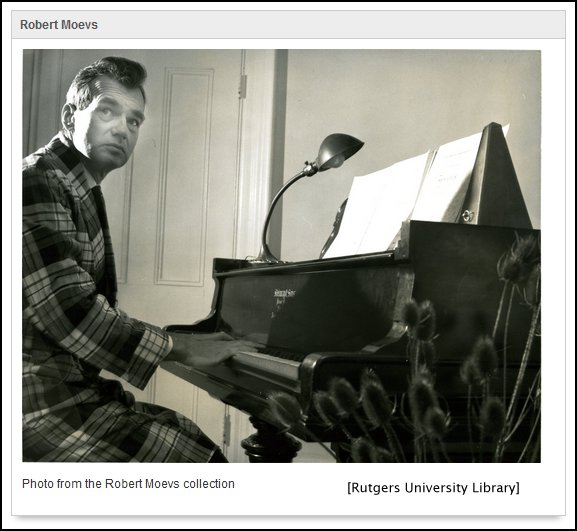

| Robert (Walter) Moevs (2 December
1920, in La Crosse, Wisconsin – 10 December 2007, in Hillsborough, New Jersey),
studied with Walter Piston at Harvard College (A.B., 1942). Along with other
leading American composers before and after, he studied with Nadia Boulanger
at the Paris Conservatory from 1947 to 1951, and at Harvard University (A.M.,
1952). From 1952 to 1955 he was a Rome Prize Fellow in music at the American
Academy in Rome. He held a Guggenheim fellowship (1963-1964). Moevs taught at Harvard University from 1955 to 1963. He was composer-in-residence at the American Academy in Rome in 1960-1961. In 1964 he joined the faculty of Rutgers University in New Jersey, where he was a professor from 1968 to 1991, and chairman of the music department at its New Brunswick campus from 1974 to 1981. In addition to his activities as a composer and teacher, he made appearances as a pianist, often in performances of his own works. Robert Moevs is part of a generation of composers who came of age musically in the years immediately following World War II. Bold new works of Béla Bartók and Igor Stravinsky, heard amidst the upheavals of the war, inspired many to take a next step: to reject much of the past, forging a new musical language which built on the path-breaking atonality and compositional rigor of Arnold Schoenberg and Anton Webern. He was well placed to become a leading American representative of the post-war international movement in the world of music. After serving in World War II as a pilot in the United States Air Force, Moevs’ formative years were spent in Europe, first as a student in Paris, and later as a recipient of the coveted Rome Prize. In close contact with the tightly-structured works of Pierre Boulez, and stunned by the raw sound of Edgar Varèse, Moevs synthesised these styles into what he termed “systematic chromaticism.” Perhaps because of his deep-seated love of the music of such masters as J.S. Bach and Beethoven, Moevs never adopted complete serialism. Based on intervallic procedures that could be heard and recognised, his music retains a compelling and visceral dynamic impact. As a composer, Robert Moevs developed a compositional method based on intervallic control as opposed to specific pitch sequence that he described as systematic chromaticism. The creator of a rich body of orchestral, chamber, vocal and instrumental music, he has received major performances by George Szell and the Cleveland Orchestra, Erich Leinsdorf and the Boston Symphony, and Leonard Bernstein and Symphony of the Air. World-wide recognition came in the form of the Stockhausen International Prize in Composition, which he was awarded in 1978, for his Concerto Grosso for Piano, Percussion, and Orchestra. Moevs’ style has been described as “an extremely rich resource,” because he found a unique way to combine identifiable tonal centres with serialism, creating a musical style the excitement of which arises out of the underlying tension between the realism of tonal centres and the abstraction of serialism. -- From the Bach Cantatas website
-- Throughout this webpage, names which are links refer to my Interviews elsewhere on my website. BD |
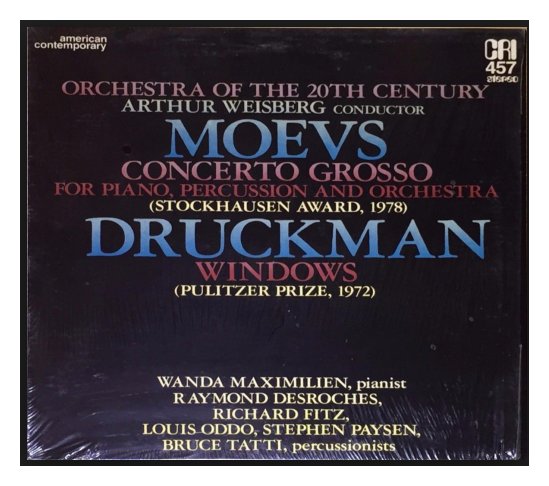 RM: Good! I have two pieces for solo flute.
This one I wrote back in the ’50s, and I have one much
more recent than this – also much more difficult. Then there
is the Concerto Grosso. That’s
a big piece for piano and percussion and orchestra. On the other side
is a piece called Windows by Jacob Druckman.
They are both done by Arthur Weisberg and
the Orchestra of the 20th Century before it faded.
RM: Good! I have two pieces for solo flute.
This one I wrote back in the ’50s, and I have one much
more recent than this – also much more difficult. Then there
is the Concerto Grosso. That’s
a big piece for piano and percussion and orchestra. On the other side
is a piece called Windows by Jacob Druckman.
They are both done by Arthur Weisberg and
the Orchestra of the 20th Century before it faded.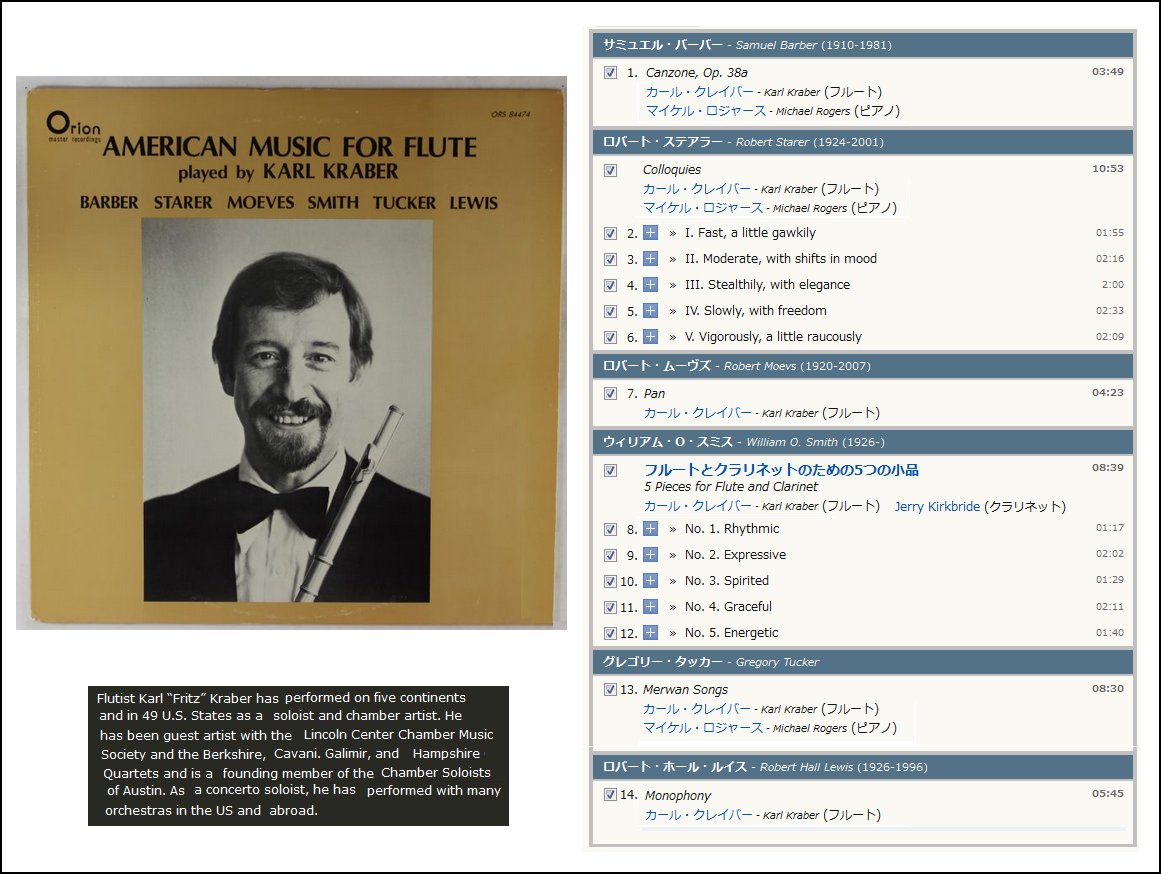
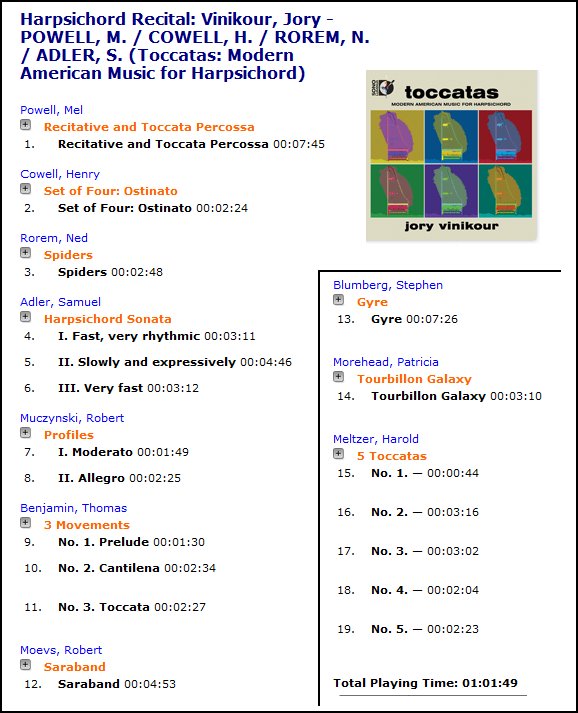 RM: You must have a sense of that, too. For
some things, like this string quartet, I was simply told that anything twenty
minutes to a half-hour would be fine, so I don’t have to worry about that.
I simply allow the music to go. Last year I had to write a piece for
solo harpsichord, and the time was supposed to be four minutes and thirty
seconds.
RM: You must have a sense of that, too. For
some things, like this string quartet, I was simply told that anything twenty
minutes to a half-hour would be fine, so I don’t have to worry about that.
I simply allow the music to go. Last year I had to write a piece for
solo harpsichord, and the time was supposed to be four minutes and thirty
seconds. 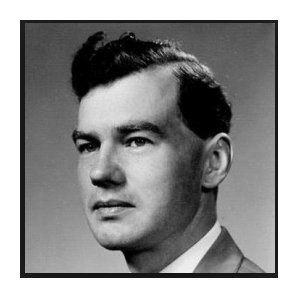 BD: It is for one piano four hands, or two pianos?
BD: It is for one piano four hands, or two pianos?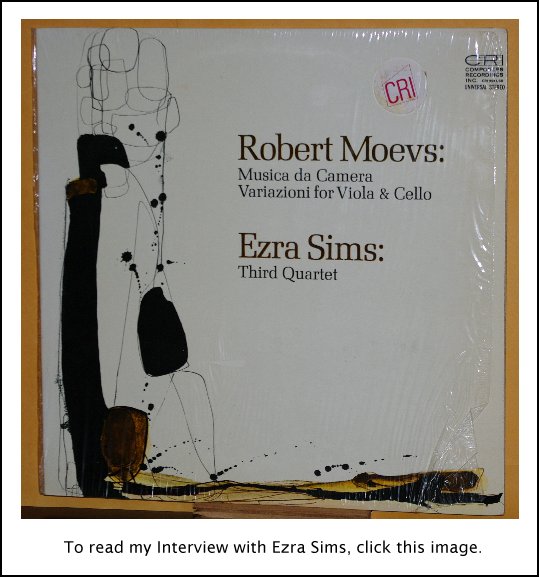 RM:
Well, no. Sometimes ten days or a week will go by when I have to be
there all the time, and it gets just too hairy. But I always try to
keep my hand in and stay with it. Then there are days when I can get
into my studio most of the day, and then it’s fine. So I try to keep
going. In the summer time, sometimes we do traveling, but if we go to
Rome, as we usually do every summer, I have a piano there, and I can work
there too. So I keep music going that way.
RM:
Well, no. Sometimes ten days or a week will go by when I have to be
there all the time, and it gets just too hairy. But I always try to
keep my hand in and stay with it. Then there are days when I can get
into my studio most of the day, and then it’s fine. So I try to keep
going. In the summer time, sometimes we do traveling, but if we go to
Rome, as we usually do every summer, I have a piano there, and I can work
there too. So I keep music going that way.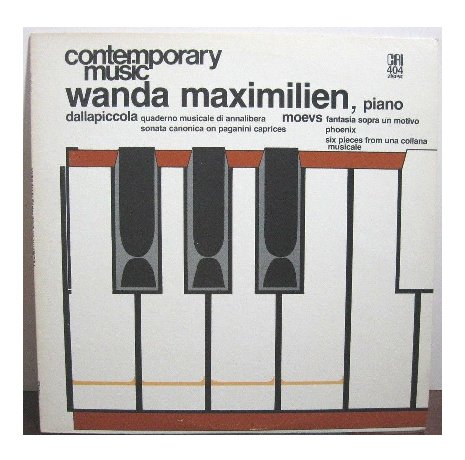 RM: Yes. In general, I have, yes. They’ve
been good performances. Usually they’ve been pieces that have been played
quite a number of times, and gone over and adopted by the performer in the
way we set it at the beginning, so that’s fine. The Concerto Grosso was played beautifully,
but the recording, as it turned out, was somewhat disappointing because it
should have been clearer. Certain things were in the score and were
played, and you don’t hear them in the recording.
RM: Yes. In general, I have, yes. They’ve
been good performances. Usually they’ve been pieces that have been played
quite a number of times, and gone over and adopted by the performer in the
way we set it at the beginning, so that’s fine. The Concerto Grosso was played beautifully,
but the recording, as it turned out, was somewhat disappointing because it
should have been clearer. Certain things were in the score and were
played, and you don’t hear them in the recording.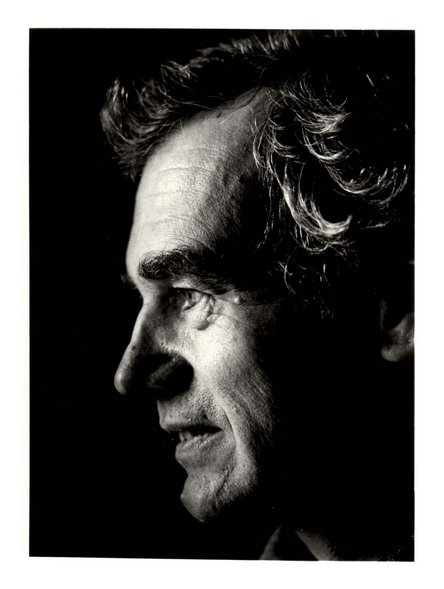 BD: Is any of that lost because of over-hearing
and re-hearing his works so many times?
BD: Is any of that lost because of over-hearing
and re-hearing his works so many times?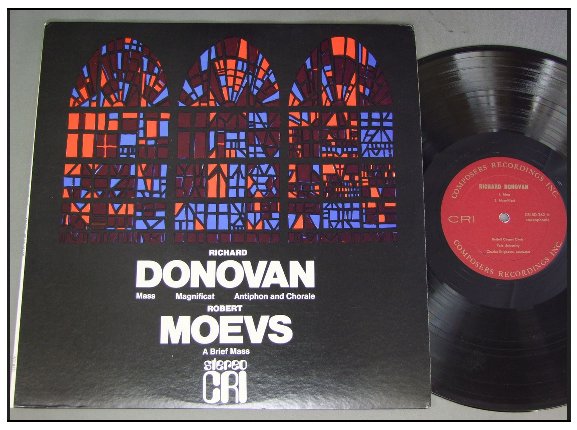 RM: Pretty much by now, except opera.
RM: Pretty much by now, except opera.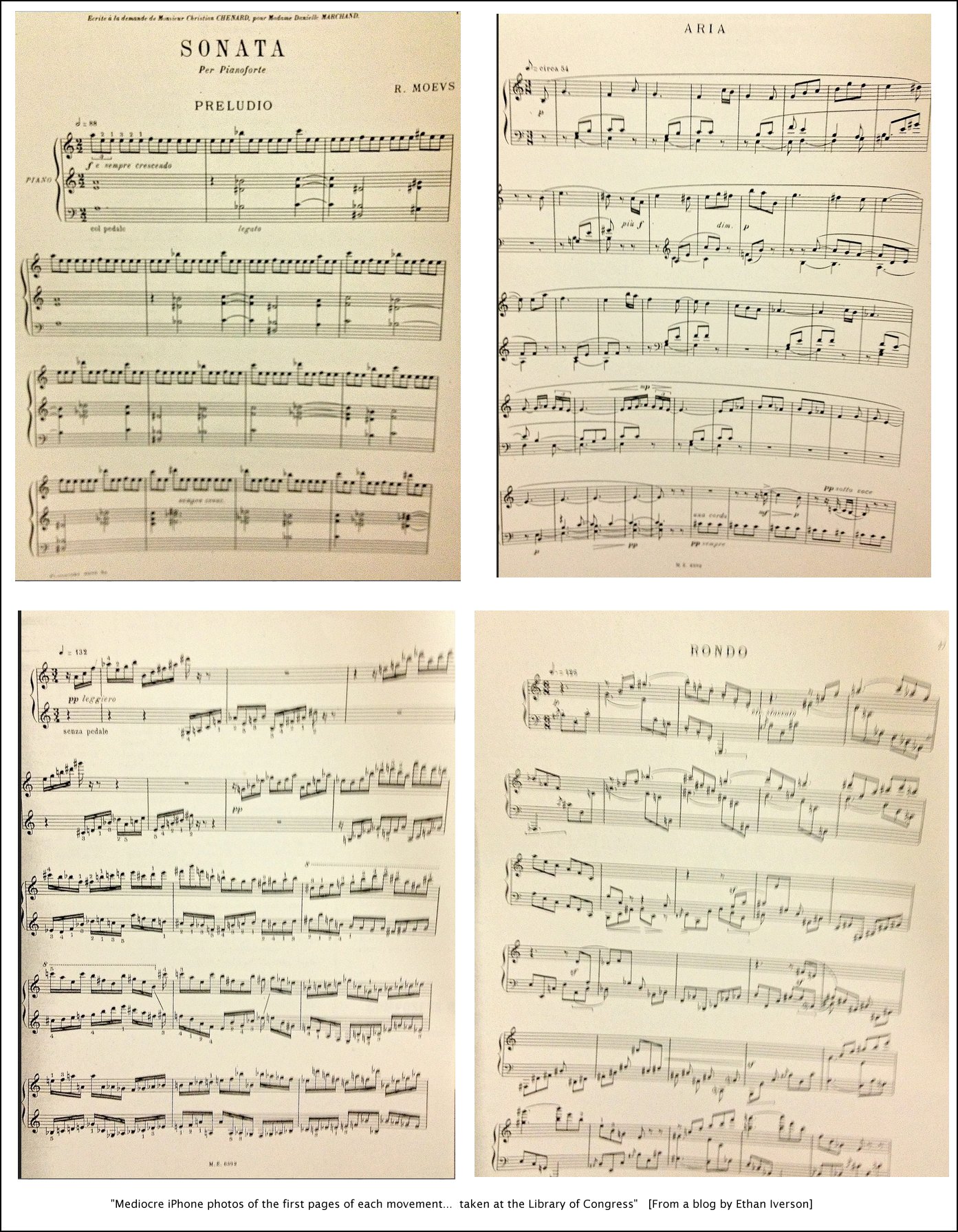
© 1988 Bruce Duffie
This conversation was recorded in Chicago on December 28, 1988. Portions were broadcast on WNIB in 1990, and again in 1995 and 2000. This transcription was made in 2016, and posted on this website at that time. My thanks to British soprano Una Barry for her help in preparing this website presentation.
To see a full list (with links) of interviews which have been transcribed and posted on this website, click here. To read my thoughts on editing these interviews for print, as well as a few other interesting observations, click here.
Award - winning broadcaster Bruce Duffie was with WNIB, Classical 97 in Chicago from 1975 until its final moment as a classical station in February of 2001. His interviews have also appeared in various magazines and journals since 1980, and he now continues his broadcast series on WNUR-FM, as well as on Contemporary Classical Internet Radio.
You are invited to visit his website for more information about his work, including selected transcripts of other interviews, plus a full list of his guests. He would also like to call your attention to the photos and information about his grandfather, who was a pioneer in the automotive field more than a century ago. You may also send him E-Mail with comments, questions and suggestions.